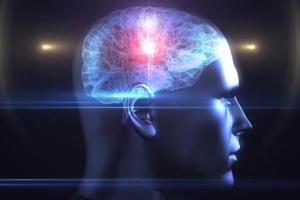The research team is working to identify the visual features of coronavirus-related pneumonia through analysis of 3D data from CT scans

This picture has been used for representational purpose only
Researchers are developing a new technique using Artificial Intelligence (AI) that would improve CT screening to more quickly identify patients infected with COVID-19. The new technique will reduce the burden on the radiologists tasked with screening each image, according to a research team from the University of Notre Dame in the US.
ADVERTISEMENT
Researchers are developing a new technique using #AI that would improve CT screening to more quickly identify patients infected with #COVID.
— IANS Tweets (@ians_india) August 11, 2020
The new technique will reduce the burden on radiologists tasked with screening each image, acc to a research team from Uni of Notre Dame. pic.twitter.com/d8xw71UC08
Testing challenges have led to an influx of patients hospitalised with COVID-19 requiring CT scans which have revealed visual signs of the disease, including ground-glass opacities, a condition that consists of abnormal lesions, presenting as a haziness on images of the lungs. "Most patients with coronavirus show signs of Covid-related pneumonia on a chest CT but with a large number of suspected cases, radiologists are working overtime to screen them all," said study lead author Yiyu Shi from the Notre Dame.
"We have shown that we can use deep learning -- a field of AI -- to identify those signs, drastically speeding up the screening process and reducing the burden on radiologists," Yiyu added.
The research team is working to identify the visual features of coronavirus-related pneumonia through analysis of 3D data from CT scans. The team is working to combine the analysis software with off-the-shelf hardware for a light-weight mobile device that can be easily and immediately integrated in clinics around the country.
The challenge, Shi said, is that 3D CT scans are so large, it's nearly impossible to detect specific features and extract them efficiently and accurately on plug-and-play mobile devices. "We're developing a novel method inspired by Independent Component Analysis, using a statistical architecture to break each image into smaller segments, which will allow deep neural networks to target Covid-related features within large 3D images," Shi wrote.
The research team is collaborating with radiologists at Guangdong Provincial People's Hospital in China and the University of Pittsburgh Medical Centre, where a large number of CT images from COVID-19 pneumonia are being made available. The team hopes to have development completed by the end of the year.
Keep scrolling to read more news
Catch up on all the latest Crime, National, International and Hatke news here. Also download the new mid-day Android and iOS apps to get latest updates.
Mid-Day is now on Telegram. Click here to join our channel (@middayinfomedialtd) and stay updated with the latest news
This story has been sourced from a third party syndicated feed, agencies. Mid-day accepts no responsibility or liability for its dependability, trustworthiness, reliability and data of the text. Mid-day management/mid-day.com reserves the sole right to alter, delete or remove (without notice) the content in its absolute discretion for any reason whatsoever
 Subscribe today by clicking the link and stay updated with the latest news!" Click here!
Subscribe today by clicking the link and stay updated with the latest news!" Click here!







